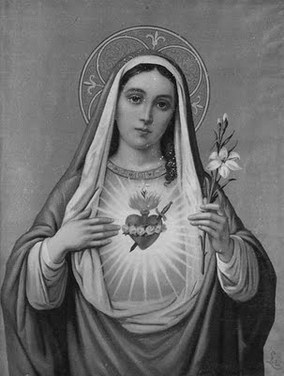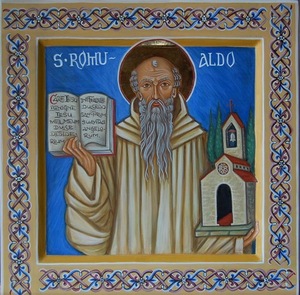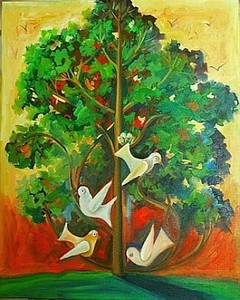My heart will rejoice in your salvation. I will sing to the Lord, who has been bountiful with me.

With Mother Church we pray,
O God, who has prepared a fit dwelling place for the Holy Spirit in the Heart of the Blessed Virgin Mary, graciously grant that through her intercession we may be a worthy temple of your glory.
The solemnity of the Sacred Heart of Jesus is directly followed by the memorial of the Immaculate Heart of Mary, the supreme human vessel of the Holy Spirit. In days following the feast of Pentecost the Church offers us an opportunity to dedicate our lives once again to the love and work of Divine Providence today. As we move through summer and then into the autumn we need a focus and the Hearts of Jesus and Mary are just the focus we need.
If you read the Litany to the Immaculate Heart of Mary you notice the characteristics the Church believes are part of Mary’s witness to Divine Providence, and which ought to be a part of our lives, too. The Litany keeps the recognition of the Mystery alive; it awakens within us our destiny in Christ. Therefore, what is said of Mary ought to be said of us (with God’s grace, of course). Let me note a few of the characteristcs that we ought to have: a heart like God’s, a heart united to Jesus’, an instrument of the Holy Spirit, a sanctuary of the Blessed Trinity, a tabernacle of the Incarnation, etc. Find the Litany of the Immaculate Heart and meditate on it today. It will be a invitation to conversion.
In August, the month dedicated to the Immaculate Heart of Mary, we’ll return to a way of living in the purity of intention and love found in Mary.






